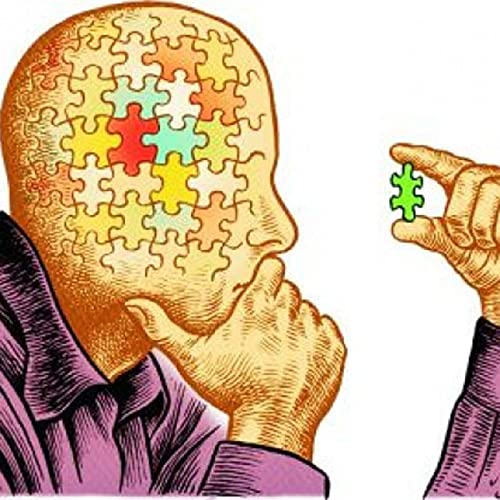
Benjamin Franklin once wrote: “There are three things extremely hard: steel, diamonds and the ability to know one’s self.” We have a pathological need to think highly of ourselves. Yet we’re not as clever, skilled or self-assured as we might imagine or hope. This neurological glitch in our self-concept – what some call their identity – is what psychologists label as motivated reasoning. The antidote, if there is one, flows from honest self-appraisal and an acceptance of the fact that we are imperfect, therefore fallible, that we make a lot of mistakes and that we need to impose limits on what we can and cannot do. Failure is simply a data point that allows us to adjust and move forward.
Self-knowledge is no more than self-awareness. One informs the other. That starts with acknowledging our limitations and accepting our flaws. Thinking otherwise qualifies as delusion. Although people in positions of power don’t usually start off any less self-aware, the psychosis of leadership (known as power poisoning) often grows as they ascend the corporate ladder. Early successes give way to an intoxicating hubris that blinds them to some important truths they tend to ignore. Which is why almost a third of them are fired for “denying reality,” playing it safe or regressing to the mean. Their neurobiology even changes to reflect and sustain this affliction.
Yet most of us believe we’re above average. Over 70% of men and 60% of women agree with this statement: “I am more intelligent than the average person.” The sobering fact is that only half of us can be. This belief is imprinted early in life and, for many, deepens over time. A study of a million high school graduates revealed a full 25% placed themselves in the top 1% in their ability to get along with others. Only 2% said they were below average. (Some might presume this research involved Millennials. It did not – the sample population consisted of Boomers.)
Our innate tendency to overestimate our strengths is a consequence of the inbred need to feel superior to others in at least some facet of our lives, whether that be our intelligence, charm, popularity or inherent goodness. At times, this can be positive as it nurtures an inner confidence or resolve to push past our deficiencies and excel, to be open to new adventures and even to take questionable risks. Yet, realistically, we cannot be skilled at or know everything, nor can we control events or please everyone.
Making matters worse, the least competent tend to be the most confident in their abilities. This phenomenon is known as the Dunning-Kruger Effect and has been replicated with dozens of tests on skills like driving, academic achievement and job performance. For example, a recent American study found student pilots who scored the lowest on their final flight exams “grossly overestimated their ability” while higher-scoring students significantly underestimated theirs. A scary thought. Over 90% of Swedish males say they’re above average drivers. More than 80% of Frenchmen say they’re above average lovers. And 90% of investment bankers say they’re in the top 10% of their profession. Statistical contradictions all.
Minimally, we do want to see ourselves as above average. But this slippery slope of ignorance can nudge us towards arrogance, conceit and occasional fantasies of greatness. Instead of recognizing and accepting our failures for what they are, and then learning from them, we too often assume they’re not really our fault – that we are the victim of unfortunate circumstances or the malfeasance of others. Then, we tend to rationalize the reasons why this is so and convince ourselves that it can’t all be “on us.” Instead of earning praise through effort, we feel entitled to it. As Daniel Kahneman so astutely observed, we possess an almost unlimited ability to ignore our ignorance.
This is just part of being human. We are bad at recognizing what we don’t know but very good at making stuff up. We ignore information that contradicts our beliefs and don’t really know all that we like to think we do. We are better at generating plausible theories about life than admitting our ignorance. We explain things to others, as well as to ourselves, even when the real explanation eludes us. We believe things that aren’t true and disbelieve what is. We think our beliefs are based on facts and believe those who disagree with us must have been exposed to the wrong information. We draw swift, sweeping conclusions based on scanty evidence, are supremely unmotivated to educate ourselves about what we disagree with, and conveniently revise our theories when they’re proven wrong.
These beneficial self-deceptions and self-flattering beliefs give meaning to our lives and make us happy. Self-knowledge is admitting these things to ourselves, if not to those whom we trust. Science tells us that those who overestimate their abilities have the highest levels of life satisfaction. That said, it’s worth noting that feeling great about your life and performing to your highest level of competence are quite different things. Those with accurate self-knowledge – grounded in reality – are the ones who are most driven to improve. Which is why they achieve more. And that’s the purpose of self-knowledge.
